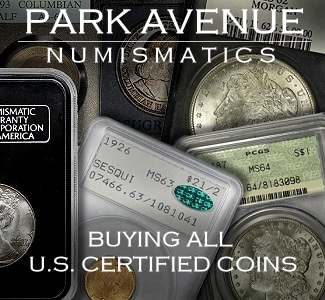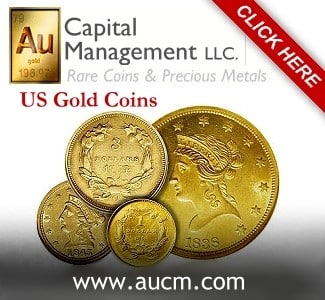House Hearing: Session 3
Prior to the opening of the third session of the House Hearings, Annunzio introduced HR6158, a new Olympic coin bill calling for two silver dollars and one gold $10 coin. The bill was in response to the support being shown for St. Germain’s 17-coin bill by the Olympic committees and others.
In his opening comments, Annunzio raised the issue of the strong criticisms being directed at the US Treasury Department and the US Mint concerning their inability to manage large coinage programs and the high likelihood of them failing to deliver if they were put in charge of the sales and marketing efforts for the 1984 Los Angeles Olympic coins.
He reported receiving from US Treasurer Angela Buchanan assurances that the Mint could indeed handle the successful marketing of the coins and that she believed a minimum of $31 million from initial sales of the coins could be turned over to the Olympic committees by the end of September 1982 with at least an additional $56 million over the following two years.
Annunzio compared this with the contract terms agreed to by the Coin Group and the Olympic committees. Under the terms of the agreement, the committees would receive $20 million upon execution of the contract but it would have to wait until January 1984 to get the additional $10 million that was guaranteed.

Annunzio questioned why the committees would turn down the $31 million from the US Treasury in order to receive only $20 million from the Coin Group, asking “Could there be some secret deals, under the table payments, special contracts, the hiring of favored law firms, or even out-and-out bribes?”[15] He admitted he had no evidence to suggest such scenarios, but definitely needed to get an answer to the question.
St. Germain then introduced the letter he had received from Treasurer Buchanan in which she expressed her Department’s support for his 17-coin proposal, as it met many of the Department’s original objections to S.1230 and would provide the important upfront funding needed by the Olympic committees.
He continued with a thinly-veiled attack on Annunzio and his supporters by implying their involvement in published news stories of “world-class scandals and a revival of rackets”[16] in reference to the private marketing of the coins. He also noted the improper disclosure of internal subcommittee correspondence about the coins to the media and reports by the press that if Annunzio’s one-coin bill were passed it would ensure “that none of those hated ‘private marketers’ would touch a coin.”[17]
St. Germain challenged the opponents of his bill to either come forward with their evidence of misdeeds among the Coin Group or committees or cease the attacks and get down to the business of securing a workable coin bill so that the Olympic organizers and athletes could get the funding they needed without further delay.
Angela Buchanan was the primary witness at the third session, and was asked to come before the subcommittee to discuss the merits of St. Germain’s 17-coin HR.6058 vs. Annunzio’s new HR6158 which called for just three coins.
After thanking each for their efforts on behalf of America’s athletes and for their support of the Los Angeles Olympics, Buchanan recommended the passage of St. Germain’s bill. The Treasury Department believed the 17-coin program could raise more money for the Olympic Committees, and that its use of private marketers would likely offer a greater chance of success domestically as well as internationally. Buchanan was hesitant to “hinge the success of the 1984 Los Angeles Olympics on a coin marketing program run by the Government.”[18] She also commented that the endorsement of HR.6058 by both Olympic committees “was no small factor in our decision.”[19]
The support was not unqualified, however, as Buchanan indicated that several changes would need to be made to HR.6058 before the Treasury could fully endorse it. Primary among them was the need for a clear statement of the split of revenues between the private marketers and the Olympic committees. Buchanan believed such a specification was necessary to ensure that “one or more private marketing groups will in fact bid on a 17-coin proposal [with] … a guarantee of $30 million to the Olympic committees.”[20]
Clearly chagrined by the Treasury’s support of St. Germain’s bill over his, Annunzio began the follow-up questioning of Buchanan by attempting to discredit the individual businesses comprising the Coin Group. He asked if Buchanan would be “comfortable” conducting business with a company “that had not paid any Federal income tax for three years, even though it has had millions of dollars of earnings [Occidental Petroleum], or another company that is a foreign-owned and operated company [Lazard Freres], or a third company that has just been cited by the SEC for a $267,000 stock fraud [Franklin Mint].”[21]
Article Continues on the Following Page(s) ……….




